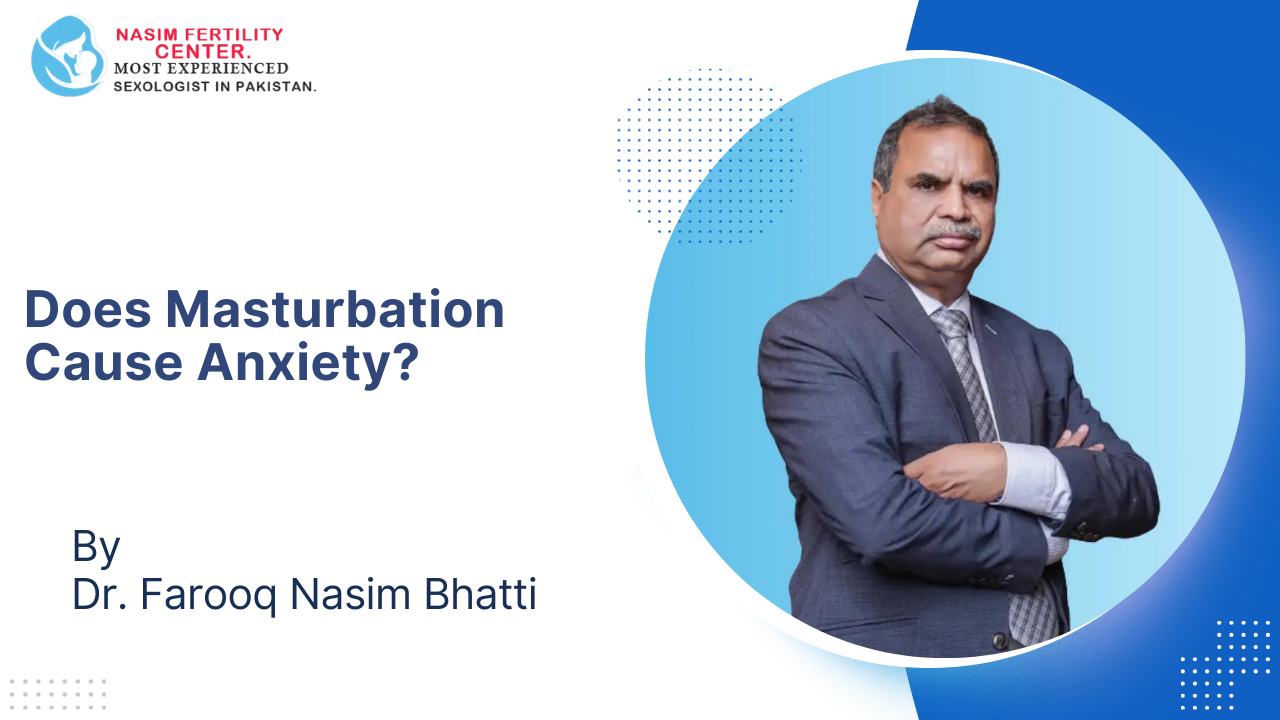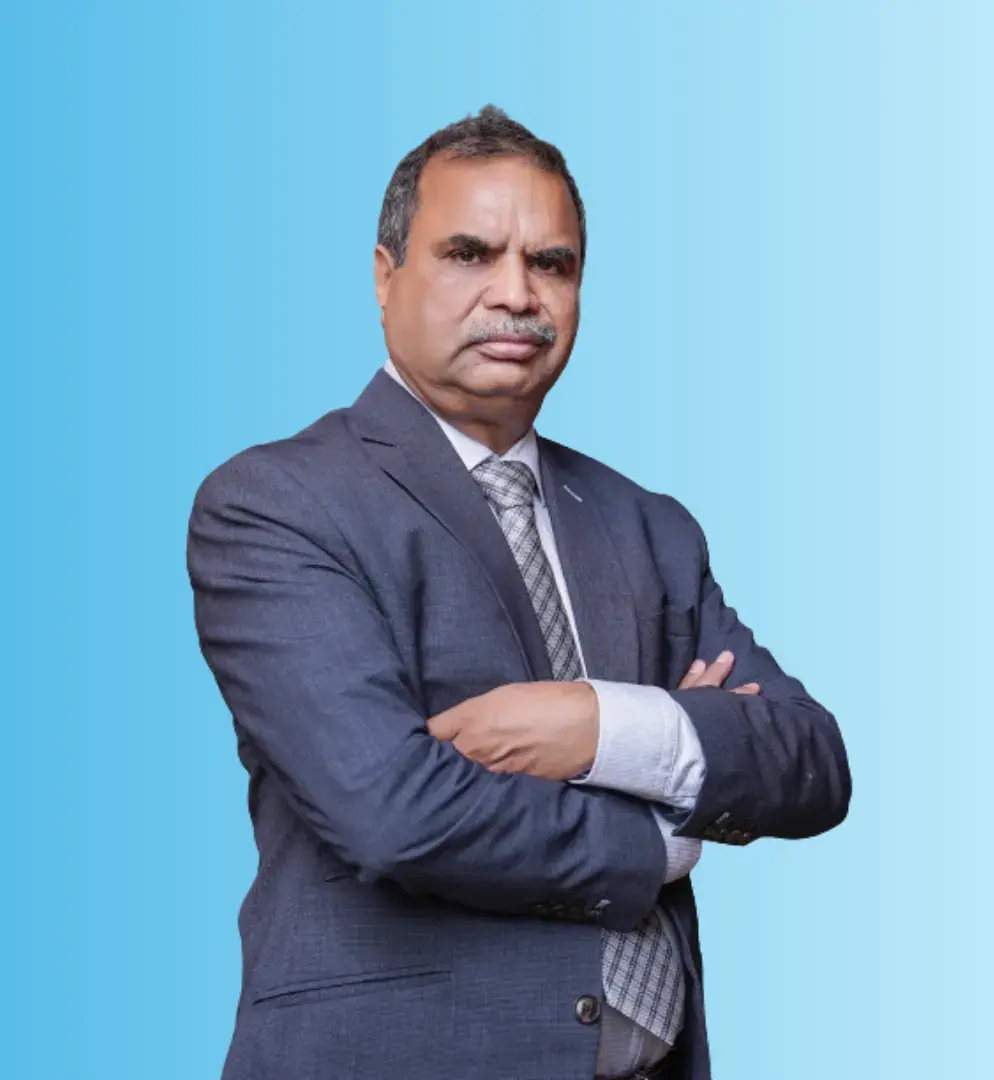
Masturbation is a natural part of human sexuality. Yet, for many men, this simple act comes with overwhelming questions, guilt, or even fear. One of the most common concerns people have is: “Does masturbation cause anxiety?”
This question becomes even more complicated in cultures where open conversations about sexual health are limited, and myths often spread faster than facts. If you’ve ever felt anxious after masturbation or worried about its long-term impact on your mental health, you’re not alone. The truth is, while masturbation itself doesn’t directly cause anxiety, there are psychological, cultural, and behavioral factors that can create this link.
In this article, we’ll break down the science, psychology, and professional insights surrounding masturbation and anxiety. Most importantly, we’ll share where you can find professional help if anxiety linked to sexual health is affecting your daily life.
Understanding Masturbation
Masturbation simply means self-stimulation for sexual pleasure. It’s one of the most common sexual behaviors in both men and women, across all cultures and age groups. Research shows that more than 90% of men masturbate at some point in their lives, making it a completely natural activity.
People often masturbate to:
- Relieve stress or tension
- Improve sleep quality
- Explore their own body and preferences
- Experience sexual pleasure when a partner is not available
Despite being natural, masturbation is still surrounded by myths and taboos, especially in South Asian societies. Many men grow up hearing that it weakens the body, drains energy, or even causes long-term illness. These myths can cause guilt, which directly fuels anxiety after the act.
What is Anxiety?
Before we link masturbation and anxiety, it’s important to understand what anxiety actually is.
Anxiety is your body’s natural response to stress. It can manifest as:
- Constant worry or overthinking
- Restlessness and inability to focus
- Rapid heartbeat and sweating
- Trouble sleeping
- Fear of something going wrong, even without reason
Occasional anxiety is normal. But when it becomes frequent or intense, it can interfere with daily life and relationships. This is when it may be classified as an anxiety disorder.
Many men report feeling anxious after masturbation — not because masturbation itself causes anxiety, but because of the guilt, shame, or obsessive thoughts attached to it.
Does Masturbation Cause Anxiety?
The straight answer is no — masturbation does not directly cause anxiety. Medical research has found no scientific evidence proving that masturbation damages mental health.
However, here’s where the confusion begins:
- Guilt and Shame – In conservative cultures, masturbation is often seen as taboo. Men may feel guilty or “dirty” after doing it, leading to anxious thoughts.
- Overthinking (“Post-nut clarity”) – Some men feel regret or question their actions immediately after masturbation. This can trigger short-term anxiety.
- Compulsive Behavior – If someone masturbates excessively or uses it as the only way to cope with stress, it may create a cycle of dependency, leading to frustration and anxiety.
- Pornography Use – Regular use of porn for masturbation can sometimes create unrealistic expectations, affecting confidence and social interactions, which in turn may worsen anxiety.
So while masturbation itself is not harmful, the psychological and cultural baggage attached to it often makes men feel anxious.
Psychological Effects of Masturbation
Masturbation impacts the brain by releasing hormones such as dopamine (pleasure hormone) and prolactin (relaxation hormone). For most men, this results in stress relief and calmness.
But for some, the psychological effects include:
- Post-masturbation guilt (feeling weak, ashamed, or regretful)
- Fear of long-term damage (due to myths like “it causes weakness” or “it lowers fertility”)
- Mood dips after orgasm (known as “post-nut clarity”)
These effects are not biological facts but rather the result of belief systems and emotional conditioning.
Physical Effects That Might Influence Anxiety
From a medical standpoint, masturbation is usually harmless. In fact, it offers some physical benefits:
- Reduces stress hormones
- Helps with better sleep
- Improves mood temporarily
However, excessive or compulsive masturbation may cause:
- Fatigue or lack of motivation
- Lower productivity if it disrupts routine
- Reduced satisfaction during sex with a partner
When these effects pile up, they can indirectly contribute to feelings of anxiety.
When Masturbation Becomes a Problem
Like anything in life, balance is key. Masturbation becomes a problem when:
- It’s done excessively, affecting your daily routine
- It leads to social withdrawal or relationship issues
- It’s used as the only way to cope with stress or sadness
- It causes feelings of guilt and shame that don’t go away
In such cases, the real problem is not masturbation itself, but the psychological dependency or cultural guilt surrounding it.
How to Maintain a Healthy Relationship with Masturbation
If you want to avoid anxiety linked to masturbation, here are some steps:
- Accept it as natural – Remind yourself that masturbation is a normal sexual behavior.
- Moderation matters – Excessive habits can interfere with life, but moderate masturbation is generally healthy.
- Don’t rely on it as a stress outlet – Mix it with other healthy habits like exercise, meditation, or hobbies.
- Challenge myths – Educate yourself about the scientific facts of sexual health instead of relying on cultural myths.
- Seek help if needed – If guilt, anxiety, or compulsive habits overwhelm you, professional help is available.
Treatment & Professional Help Available at Dr. Farooq Nasim Bhatti’s Clinics
For men in Pakistan struggling with anxiety related to masturbation, sexual weakness, or infertility, Dr. Farooq Nasim Bhatti provides world-class treatment.
- Expertise: Dr. Farooq Nasim Bhatti is Pakistan’s first and only internationally certified sexologist with qualifications including MBBS, FAACS (USA), Diplomate of the American Board of Sexology (USA), CST, HSC (Hong Kong), and CART (Malaysia & China).
- Experience: With over 31 years of clinical practice, he has successfully treated thousands of men facing issues like Erectile Dysfunction (ED), Premature Ejaculation (PE), Masturbation-induced dysfunction, Dhant/Jaryan, Sexual Weakness, and Anxiety linked to sexual health.
- Clinics & Accessibility: He runs fully equipped clinics in Lahore, Islamabad, and Faisalabad, and also offers confidential online consultations for patients across Pakistan and abroad.
- Conditions Treated:
- Erectile Dysfunction (ED)
- Premature Ejaculation (PE)
- Male Infertility & Low Sperm Count
- Anxiety and stress caused by sexual dysfunction
- Relationship counseling & non-consummated marriage cases
His approach combines medical treatment, psychological counseling, and lifestyle guidance, ensuring patients achieve long-term results with full confidentiality.
If you’re experiencing anxiety that you believe is linked to masturbation, seeking professional support from Dr. Farooq Nasim Bhatti can help you overcome myths, restore confidence, and regain control of your sexual health.
Conclusion
So, does masturbation cause anxiety? Medically, no. Masturbation itself does not directly lead to anxiety. However, cultural guilt, excessive habits, and psychological overthinking can create a strong connection between the two.
The good news is — anxiety can be treated, myths can be unlearned, and sexual health can be restored. If you find yourself struggling, don’t suffer in silence. Confidential and professional help is available at Dr. Farooq Nasim Bhatti’s clinics and online consultation platforms.
Your mental and sexual health deserve care, respect, and the right medical guidance.
FAQs
- Can excessive masturbation increase anxiety?
Yes, not directly, but excessive habits can cause fatigue, guilt, and dependency, which may worsen anxiety. - Why do I feel guilty or anxious after masturbation?
This usually comes from cultural myths or personal beliefs, not from the act itself. - Is it normal to feel relaxed after masturbation instead of anxious?
Yes, many men experience stress relief and relaxation after masturbation due to hormone release. - Can quitting masturbation reduce anxiety?
If guilt or over-dependency is the main issue, reducing frequency may help. But addressing the underlying anxiety is more important. - Does masturbation affect mental health in the long run?
No scientific evidence proves this. The issues usually stem from guilt, myths, or compulsive use. - Can masturbation affect fertility?
No, masturbation does not cause infertility. Problems arise only with excessive or compulsive habits tied to other health conditions. - How do I stop feeling guilty about masturbation?
Education, self-acceptance, and counseling can help eliminate unnecessary guilt. - Can anxiety disorders make masturbation feel worse?
Yes, people with pre-existing anxiety may overthink and feel heightened guilt after masturbation. - What’s the best way to control masturbation frequency?
Set limits, focus on other healthy habits, and avoid triggers like excessive pornography. - Where can I find professional help for masturbation-related anxiety in Pakistan?
You can consult Dr. Farooq Nasim Bhatti at his clinics in Lahore, Islamabad, and Faisalabad, or book a confidential online session.
Disclaimer
This information is for educational purposes and not the treatment. For treatment, you need to consult the doctor.

Dr. Farooq Nasim Bhatti (MBBS, FAACS – USA, Diplomate: American Board of Sexology, CST, HSC – Hong Kong, CART – Malaysia & China) is a qualified medical sexologist with 30+ years of experience. He has presented 21+ research papers internationally and treats sexual dysfunction through sex therapy, counseling, and pharmacotherapy to restore natural sexual function without temporary medication.

Regain Confidence with Our ED Solutions
Explore effective treatments for erectile dysfunction. Take charge of your intimacy today.


